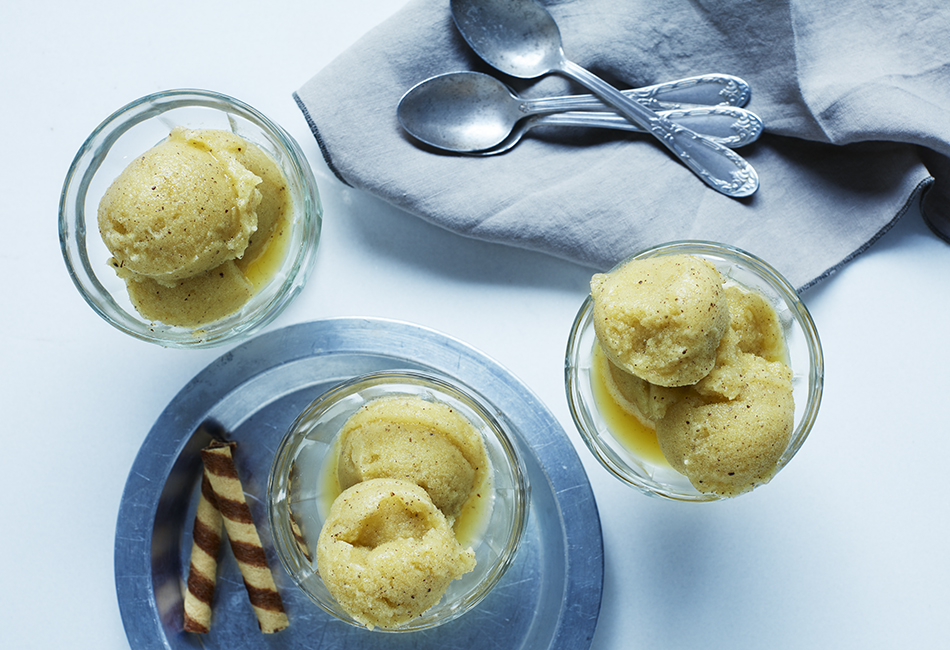How to Stop Illness Killing Your Appetite
May 15, 2017


Andréa Childs
Jan 22, 2025 58
Any one of us who has lost our appetite, whether it's due to stress, bereavement, illness, or any of the myriad physical and emotional challenges we may face, knows the dreadful dilemma of knowing we should eat, realising it will help us feel better and stronger, and yet not being able to face the food on our plate. Jane Clarke, a dietitian with more than 25 years' experience in her field, understands this more than most. 'During my teens and early twenties, I suffered from dreadful, debilitating endometriosis, which often required hospital treatment,' she recalls. 'When you're having to deal with intense and prolonged pain which requires strong medication to relieve it in my case, morphine , the last thing you feel is a desire to eat. Yet a body which is suffering needs every ounce of nourishing food to help it cope with being traumatised.'
Jane's experience, coupled with a love of food she also happens to be a trained cordon bleu chef , drew her to qualify as a dietitian. All too rapidly, she realised that the advice given in most care settings focuses on the mechanics of food - calories in, carbohydrates required, the nuts and bolts of nutrition - but does little to inspire those who need it most actually to eat. 'The body is cruel and can easily slip into a cycle of the less you eat, the less you want to eat - and that impacts how well you cope with and recover from illness, but also your mood and sense of wellbeing. I was fortunate because my mum used to bring flasks of homemade soup on to the ward to tempt me with something homely and comforting to eat.'
Last year, Jane founded Nourish by Jane Clarke - a community, website and campaign with the aim of changing people's lives through the power of nourishment. On her website, she explains the eating challenges that people with serious illnesses such as cancer, dementia and heart disease can face, and provides simple, practical solutions for problems such as the nausea associated with chemotherapy, weight gain due to steroid treatment, or the chewing and swallowing issues experienced by people living with dementia. There are also wonderful recipes tailored to these conditions but which everyone, well or poorly, will enjoy.
'With Nourish, I want to help people find pleasure, inspiration and, of course, nourishment from the food they eat,' she says. 'Tempting people to eat, even if their appetite has gone AWOL, is key because undernourishment is a huge - yet hidden - issue.' If illness is killing your appetite, here are some ideas to try...
Keep portions small. A ramekin of shepherd's pie or a cup of chocolate mousse can be less overwhelming than a plateful of food; you can always have seconds. Or pick from a platter of tasty foods, such as vegetable crudites, fresh fruits and cheeses.
Titillate taste buds. When we're ill, our sense of taste can change. Adding piquant flavours can stimulate the appetite. Marinate meats in wine or garlic; use herbs or spices to make piquant, tangy sauces; use fruit to add zest to sorbets and puddings.
Swap sweet for bitter tastes. Sharp tastes can be more appealing than sugary flavours and literally get your mouth watering. Add preserved lemon to a tagine, lime juice to steamed vegetables, or serve a sharp pickle with cheese or cold meats.
Make mealtimes a moment to savour. If you can, sharing a meal with others, talking rather than watching TV, and enjoying the ritual of cooking and serving food - even if it's just a bowl of homemade soup - can make eating more of a pleasure.

Kiwi and pineapple sorbet
Zingy, zesty kiwi and pineapple, this sweet treat is refreshing and will make your taste buds sing. Kiwi fruit are a great source of vitamin C, which alongside the bromelain-rich pineapple, provide a great 'good for you' treat.
Preparation time: about 5 minutes Freezing time: 2 hours
Ingredients
250g grape juice
1 small pineapple, skinned, cored and chopped
4 kiwifruits, peeled and chopped
2 tablespoons Good Oil optional
Method
Purée the ingredients in a blender and place in the freezer.
Stir briskly every 30 minutes for 2 hours this breaks down the ice crystals and will make the sorbet lighter and smoother .

Andréa Childs
